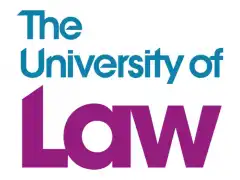Bachelor of Laws (Hons) - Law with Criminology
- 3 years
- Duration
- 17,550 GBP/year
- Price
- Rolling admission
- Start
- Rolling admission
- Deadline
- Bachelor
- Degree
- Mixed
- Format
- Multiple Locations / United Kingdom
- Location
- ULaw - The University of Law
- School
Program description
You can combine your legal education with an in-depth study of crime, criminal justice, and criminal behavior by enrolling in our three-year LLB (Hons) Law with Criminology program. Your studies will not only provide you with an excellent legal qualification, but also with exciting new employment opportunities in the field of criminology thanks to dedicated criminology modules. If you want to become a barrister, you can use the knowledge you gain from our degree to sit for the new Solicitors Qualifying Examination (SQE 1), or you can go on to our Bar Practice Course.
In addition to examining the procedures and repercussions of lawmaking, lawbreaking, and law enforcement, students pursuing our LLB Law and Criminology degree will investigate how society reacts to crime and criminality.
This Law with Criminology course will equip you not just for a career in law, but also for a wide variety of other rewarding endeavors. A legal degree is widely sought after by many different types of organizations, including those in the public and private sectors of business, education, and government.
You can study a Foundation Year before your LLB criminal law course. This first year develops degree-level study skills. Six courses will lead to any of our three-year degrees.
Program structure
1st year
- Common Law Method and Ethics
- Academic and Digital Skills
- Contract Law
- Law of Tort
- Public Law
- Criminal Law
2nd year
- Business Law 1
- Critical Approaches in Current Legal Issues
- Land Law
- Introduction to Criminology
Criminology options (choose one)
- Drugs in the Criminal Justice System
- Society and Punishment
Law options (choose one)
- Access to Justice and Legal Services
- Employment Law
- Extended Essay
- European Union Law
- Family Law
- Human Rights
- Legal Technology and Innovation
- Legal Practice in the 21st Century
- Real Estate
3rd year
- Equity and Trusts
Choose two
- Business Law 2
- Civil Dispute Resolution
- Graduate and Employability Skills
- International Commercial Law
- Mental Health and Mental Capacity Law
- Research Project (double module)
Criminology options (choose three)
- Cybercrime
- Media, Crime and Control
- Zemiology: Social Harms
Law options
- Canadian Constitutional Law (London only)
- Criminal Litigation and Evidence
- Civil Dispute Resolution
- Employment Law
- Family Law
- Foundations of Canadian Law (London only)
- Graduate and Employability Skills
- Human Rights
- International Commercial Law
- Legal Technology
- Legal Innovation and Entrepreneurship
- Real Estate
- Research Project (double module)
- Wills and Succession
Price
Tuition fees for international students per year:
- 17,550 GBP (London)
- 16,700 GBP (Non-London)
- 9,250 GBP (Online courses)
Requirements for applicants
UK Entry Requirements
- A Level: BBB
- BTEC: DDM
- UCAS Tariff Points*: 120
- GCSE: English Language Grade C/4 or above, or equivalent
*From three A Levels or equivalent.
UK Entry Requirements (Degrees with Foundation Year)
- 48 UCAS Points from a maximum of 3 A Levels, or equivalent qualifications
- GCSE English Language at Grade C/4
You may also be invited to an interview with an academic as part of the admissions process.
English language requirements for applicants whose first language is not English (LLB)
- IELTS score required: 6.5 overall (at least 6.0 in each component)
- The University of Law English Test (ULET)*: 6.5 overall (at least 6.0 in each component)
- TOEFL iBT (not ‘MyBest Scores’): 79 (Listening/Speaking 19, Reading 18, Writing 23)
- Pearson PTE Academic: 72 overall (at least 64 in each component)
- LanguageCert ESOL (both papers must be sat within 3 months): B2 Written paper: overall 101 (min 33 in R/L/W); B2 Spoken paper: min 35/50
- Trinity ISE : ISE II: Two merits and two distinctions
- Cambridge FCE/CAE/CPE (First, Advanced, Proficiency): 176 overall (at least 169 in each component)
- Cambridge IGCSE syllabus 0500, 0510, 0511, 0522, 0900, 0991:1st Language: C; 2nd Language: B
- International Baccalaureate : 4
- Functional Skills: Pass
- Trinity ESOL for Life Skills: Pass
English language requirements for applicants whose first language is not English (International Foundation Programme)
- IELTS score required: 6.0 overall (at least 5.5 in each component)
- The University of Law English Test (ULET)*: 6.0 overall (at least 5.5 in each component)
- TOEFL iBT (not ‘MyBest Scores’): 60 (Listening 11, Speaking 17, Reading 12, Writing 20)
- Pearson PTE Academic: 64 overall (at least 59 in each component)
- LanguageCert ESOL (both papers must be sat within 3 months): B2 Written paper: overall
- 101 (min 33 in R/L/W); B2 Spoken paper: min 33/50
- Trinity ISE : ISE II: Merit in all four components
- Cambridge FCE/CAE/CPE (First, Advanced, Proficiency): 169 overall (at least 162 in each
- component)
- Cambridge IGCSE syllabus 0500, 0510, 0511, 0522, 0900, 0991:1st Language: C; 2nd Language: B
- International Baccalaureate : 4
- Functional Skills: Pass
- Trinity ESOL for Life Skills: Pass
*The University of Law English Test (ULET) was developed to evaluate your level of English for undergraduate or graduate education. Our University will consider it as evidence of your proficiency in English. Additionally, it complies with the conditions for a UK visa for immigration (UKVI).
About the university

The University of Law is the largest law school in the United Kingdom and was formed in 1962 as The College of Law of England and Wales. It offers law degrees, specialized legal training, and continuing professional development courses for British barristers and lawyers. Its beginnings can be found around 1876.
Prior to receiving university status in 2012, the College of Law's educational and training business was divided off and incorporated as a private limited company. The College of Law had been established by royal charter as a charity in 1975. The College of Law Limited and The University of Law Limited were created from this. The college was given the authority to offer degrees in 2006. When it was given university status in 2012, it changed its name to The University of Law (ULaw) and became the first for-profit educational institution in the UK.
The university has nine campuses in the UK, located in Birmingham, Bristol, Chester, Guildford, Leeds, Manchester, Nottingham, and Sheffield, in addition to an overseas campus in Hong Kong.
All of our courses, from our undergraduate law degrees to our varied range of business courses and postgraduate programmes, are created using a special, varied, and innovative learning approach that has been shown to produce independent professionals capable of competing in the quickly changing professional world. Our courses are created to prepare you for the real-life difficulties of the working world with a focus on developing abilities in problem-solving, evaluating arguments, critical thinking, and commercial awareness.
Read more about The University of Law (ULaw), United Kingdom





